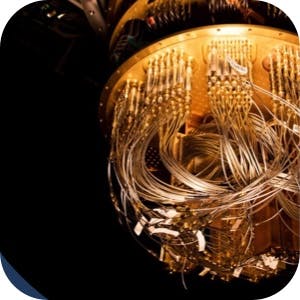- Home
- All updates
- EDGE Insights
- Industries
- Company Search
- My Watchlists (Beta)
All updates
IBM demonstrates quantum advantage in a real-life scenario
Pimax announces compact Dream Air VR headset for USD 1,900
HuLoop raises Series A funding from Mighty Capital
Fiserv to acquire Payfare for undisclosed sum to enhance embedded finance solutions
Fiserv to acquire Payfare for undisclosed sum to enhance embedded finance solutions
Meight raises EUR 3.4 million in funding led by Cusp Capital
Desktop Metal sues Nano Dimension over merger compliance
Nexa3D scales back operations amid financial crisis
Fraction AI raises USD 6 million in pre-seed funding to scale hybrid data labeling
Rocket Lab launches sixth Synspective radar satellite as part of ongoing partnership
EHang partners with Changan Automobile to develop eVTOL aircraft for personal transportation

Quantum Computing
IBM demonstrates quantum advantage in a real-life scenario
-
IBM claims to have demonstrated quantum advantage over classical computers in solving real-life problems, according to a research paper published in Nature Physics by the company on June 28, 2021.
-
The experiment aimed to prove that quantum computers, even with noise (errors), could still offer more value than classical computers. A theoretical experiment on a noiseless quantum computer demonstrated 100% accuracy compared to 87.5% in a classical computer. Even when adjusting for noise, which is common in today's real-life quantum computers, the performance was better with 93% accuracy.
-
It also disproved the "Holevo's boundary," which claims that one qubit can only store one bit of information.
-
IBM has quantum processors ranging from 5-qubits to 65-qubits, and the company aims to develop a fully operational 1,000-qubit quantum computer that is 37 times faster by 2023. The company launched a quantum computer in Germany in June 2021 and is set to launch another in Japan in July 2021 to accelerate the development of real-life quantum applications.
Contact us
By using this site, you agree to allow SPEEDA Edge and our partners to use cookies for analytics and personalization. Visit our privacy policy for more information about our data collection practices.